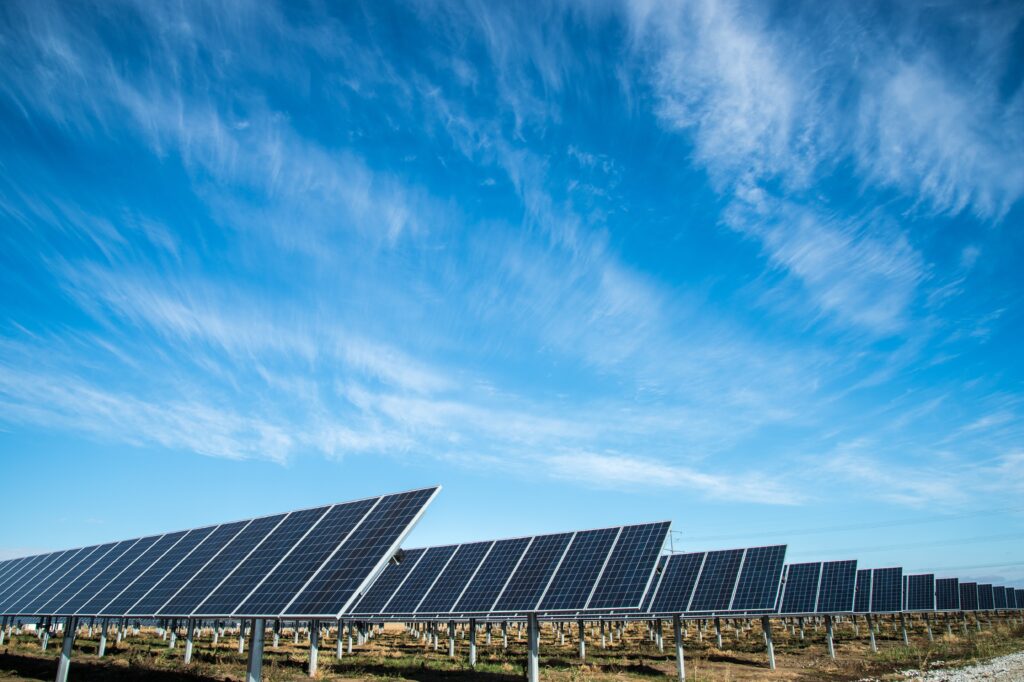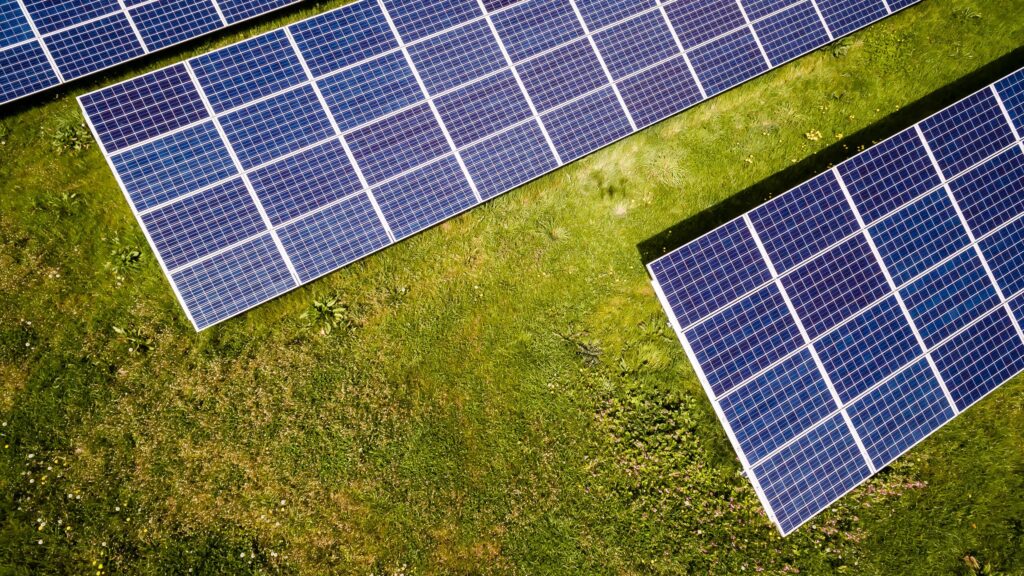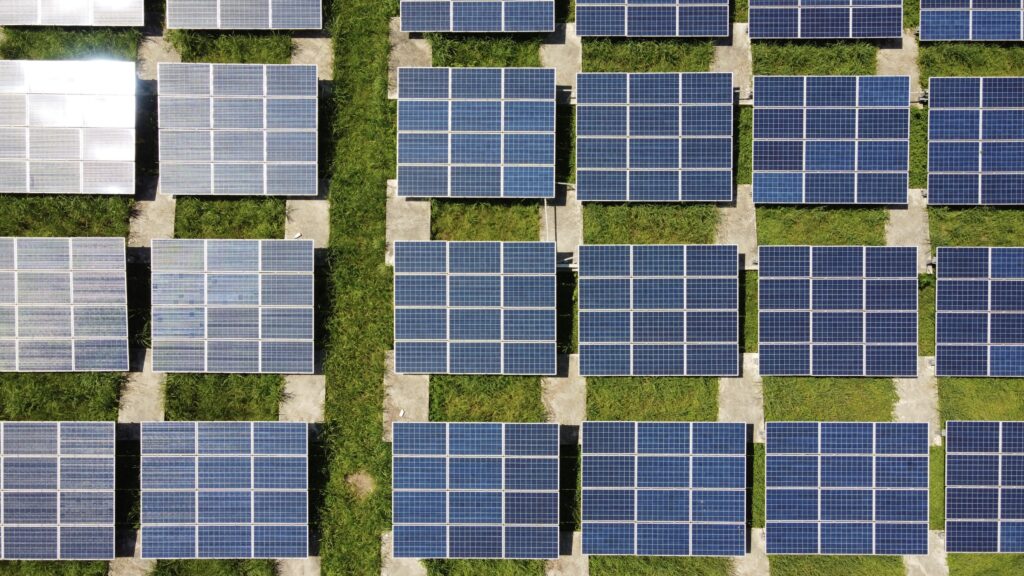Imagine experiencing the comforts of air conditioning even in remote, off-grid locations. The thought seems almost too good to be true, doesn’t it? Well, prepare to have your expectations challenged. In this article, we explore the possibility of off-grid solar systems powering air conditioning units, aiming to shed light on whether it’s a viable option or simply a distant dream. So, grab a cool drink, sit back, and get ready to uncover the potential of harnessing the sun’s energy to keep you cool and comfortable, no matter where you are.

Understanding the basics of off-grid solar power
What is off-grid solar power?
Off-grid solar power refers to a system that generates electricity from solar energy and is not connected to the main power grid. This means that rather than relying on utility companies for electricity, off-grid solar power systems enable individuals or businesses to generate their own power and operate independently from external sources.
How does off-grid solar power work?
Off-grid solar power systems work by harnessing the energy from the sun through solar panels. These panels are made up of photovoltaic cells that convert sunlight into direct current (DC) electricity. The DC electricity is then converted into alternating current (AC) electricity by an inverter, which is suitable for powering appliances and electrical devices.
To store excess solar energy for use during periods of limited sunlight, off-grid solar power systems include batteries. These batteries store the converted AC electricity and supply power when the solar panels are not actively generating electricity. This ensures a continuous power supply, even during cloudy days or at night.
Components of an off-grid solar power system
An off-grid solar power system consists of several key components:
- Solar panels: These devices capture sunlight and convert it into electricity.
- Inverter: The inverter converts DC electricity from the panels into AC electricity for powering appliances and devices.
- Batteries: These store excess electricity generated by the solar panels for use during periods of low or no solar energy production.
- Charge controller: This regulates the flow of electricity between the solar panels and batteries, preventing overcharging or damage to the batteries.
- Backup generator: Some off-grid solar power systems include a backup generator, which can provide electricity in case of extended periods of low solar energy production.
The potential of off-grid solar power
Benefits of using off-grid solar power
Using off-grid solar power offers numerous benefits. Firstly, it allows individuals and businesses to become more self-reliant and less dependent on traditional power grids. This can be particularly advantageous in remote areas or locations where accessing reliable electricity from the main grid is challenging.
Off-grid solar power systems also provide clean and renewable energy, reducing reliance on fossil fuels and minimizing carbon emissions. This contributes to a healthier environment and helps combat climate change. Additionally, off-grid solar power systems require minimal maintenance compared to traditional power sources, resulting in cost savings over time.
Who can benefit from off-grid solar power?
Off-grid solar power is suitable for various situations and individuals. It can benefit households located in remote areas that are not connected to the main power grid. Additionally, off-grid solar power is an attractive option for environmentally conscious individuals who want to reduce their carbon footprint and contribute to a more sustainable future.
Businesses that operate in off-grid locations, such as resorts, farms, or research facilities, can also benefit from off-grid solar power. These systems provide a reliable and cost-effective solution for meeting their energy needs without relying on expensive and environmentally damaging diesel generators.
Limitations of off-grid solar power
While off-grid solar power offers many advantages, there are also limitations to consider. One of the main challenges is the initial installation cost of an off-grid solar system. These systems often require a significant upfront investment in solar panels, batteries, and other components. However, it’s important to note that the long-term cost savings from reduced or eliminated electricity bills can outweigh the initial expenses.
Another limitation is the weather-dependent nature of solar power. Off-grid solar systems rely on sunlight to generate electricity, so they may not be as reliable during periods of prolonged cloudy weather or in regions with limited sunlight. However, well-designed systems with sufficient energy storage capacity can mitigate these challenges to a certain extent.
Understanding Air Conditioning (AC) energy requirements
How an AC unit works
Air conditioners, commonly referred to as AC units, cool the air by removing heat from an enclosed space. They work by using a refrigeration cycle, which consists of four main components: a compressor, a condenser, an expansion valve, and an evaporator.
The compressor pressurizes and circulates refrigerant gas, which flows to the condenser where it releases heat to the surrounding environment. The refrigerant then expands in the expansion valve, causing it to cool down significantly. As the cool refrigerant passes through the evaporator, it absorbs heat from the surrounding air, thus cooling it. The cooled air is then blown back into the room or space, providing a comfortable temperature.
Factors that influence the energy consumption of an AC unit
Several factors affect the energy consumption of an AC unit. One crucial factor is the size or cooling capacity of the unit, measured in British Thermal Units (BTUs). A larger room or space will require a more powerful AC unit to effectively cool the area, resulting in higher energy consumption.
The energy efficiency of the AC unit, expressed as its Seasonal Energy Efficiency Ratio (SEER), also plays a significant role in energy consumption. Higher SEER ratings indicate a more energy-efficient unit that requires less energy to produce the same cooling effect. Other factors, such as insulation quality, room temperature settings, and usage patterns, can also influence energy consumption.
Average energy consumption of AC units
The energy consumption of AC units varies depending on their size, SEER rating, and usage patterns. On average, a residential central AC unit can consume between 3,000 to 5,000 watts (3 to 5 kilowatts) per hour. Window units, on the other hand, typically consume around 500 to 1,500 watts (0.5 to 1.5 kilowatts) per hour. It’s important to consider these energy requirements when assessing the feasibility of running an AC unit on off-grid solar power.
Calculating the energy requirement of an AC unit
Understanding wattage, voltage, and amperage
Before calculating the energy requirement of an AC unit, it’s essential to understand the concepts of wattage, voltage, and amperage. Wattage measures the power consumed by an electrical device, while voltage refers to the electrical potential difference. Amperage, on the other hand, measures the current flowing through a circuit.
How to calculate the wattage requirement of an AC unit
To calculate the wattage requirement of an AC unit, multiply the unit’s voltage by its amperage. For example, if an AC unit operates at 120 volts and draws 10 amps, the wattage requirement would be 120 volts multiplied by 10 amps, equaling 1,200 watts or 1.2 kilowatts.
Understanding energy efficiency ratio (EER)
The Energy Efficiency Ratio (EER) is another important factor to consider when evaluating the energy requirements of an AC unit. It measures the cooling output of the unit, in BTUs, in relation to the energy consumed, in watts. A higher EER indicates a more energy-efficient unit. It can be calculated by dividing the BTU rating of the AC unit by its wattage.

Can off-grid solar power run an AC unit?
Determining the energy production capacity of off-grid solar power systems
To determine if off-grid solar power can run an AC unit, it is necessary to assess the energy production capacity of the solar system. This depends on several factors, including the size and efficiency of the solar panel array, the geographical location, and the amount of sunlight received.
Comparing the energy requirement of an AC unit with the production capacity of solar systems
Once the energy production capacity of the solar system is determined, it can be compared with the energy requirement of the AC unit. If the solar system can produce enough electricity to meet or exceed the AC unit’s energy consumption, it is possible to run the AC unit on off-grid solar power. However, it’s important to consider factors such as battery storage capacity and the availability of backup generators to ensure a continuous power supply during periods of low solar energy production.
Practical examples and case studies
To further understand the feasibility of running AC units on off-grid solar power, practical examples and case studies can provide insights. These examples can highlight successful installations, challenges faced, and strategies employed to optimize off-grid solar power systems for running AC units. By analyzing real-life scenarios, individuals and businesses can gain a better understanding of the potential and limitations of off-grid solar power for AC applications.
Factors affecting the ability of off-grid solar to power AC
Geographical location and amount of sunlight
The geographical location and the amount of sunlight received are significant factors that influence the ability of off-grid solar power to run an AC unit. Sunlight availability varies depending on the region, climate, and seasonal changes. Areas with ample sunlight year-round are more suitable for generating sufficient solar energy to meet the AC unit’s demands.
Size and efficiency of the solar panel array
The size and efficiency of the solar panel array also impact the ability of off-grid solar power systems to power AC units. Larger solar panel arrays can generate more electricity, allowing for higher energy consumption. Additionally, using more efficient solar panels can maximize the electricity output, increasing the chances of meeting the AC unit’s energy requirements.
Energy storage capacity of the system
Off-grid solar power systems rely on energy storage capacity to provide electricity during periods of low solar energy production. Sufficient battery capacity is crucial to ensure continuous power supply, especially when running energy-intensive appliances like AC units. Adequate energy storage capacity allows for storing excess energy during periods of optimal sunlight and utilizing it when solar energy production is limited.

Optimizing off-grid solar power for running AC
Using energy-efficient AC units
To optimize off-grid solar power systems for running AC units, it is advisable to use energy-efficient AC units with high SEER ratings. Energy-efficient units require less electricity to cool the space, reducing the load on the solar power system. The lower energy consumption translates into longer battery life and better utilization of the available solar energy.
Maximizing the efficiency of your solar power system
Several strategies can maximize the efficiency of off-grid solar power systems. These include proper installation and positioning of solar panels to maximize sunlight exposure, regular cleaning and maintenance to ensure optimal performance, and using energy-efficient appliances and LED lighting throughout the property. Additionally, monitoring and optimizing energy usage patterns can help identify areas where energy can be conserved, further optimizing the off-grid solar power system.
Considerations for storing excess solar energy
When running an AC unit on off-grid solar power, it is crucial to consider the storage of excess solar energy. Excess energy can be utilized during cloudy days or at night when the solar panels are not actively generating electricity. Options for storing excess energy include utilizing larger battery banks, considering energy management systems to optimize energy distribution, or even exploring options to sell excess energy back to the grid, if available.
Cost implications of running AC on off-grid solar
Initial setup cost for an off-grid solar system capable of running AC
The initial setup cost for an off-grid solar system capable of running an AC unit can vary depending on several factors, including the size and energy requirements of the AC unit, the number and capacity of solar panels and batteries, and the overall system design. It is essential to consider the costs of solar panels, inverters, batteries, charge controllers, and any additional components necessary for the specific application. While the upfront cost may be considered significant, the long-term savings from reduced or eliminated electricity bills can offset this initial investment.
Maintenance cost of the system
Off-grid solar power systems have relatively low maintenance requirements compared to traditional power sources. Routine maintenance may include cleaning solar panels, inspecting and testing components, and ensuring proper battery maintenance. Additionally, depending on the specific system, occasional replacement of batteries and other components may be necessary. While there are maintenance costs associated with off-grid solar power systems, they are generally lower compared to the ongoing expenses of grid-connected electricity.
Cost savings using off-grid solar to power AC
One of the significant advantages of using off-grid solar power to run an AC unit is the potential for cost savings. By generating electricity independently, individuals and businesses can reduce or eliminate costly electricity bills associated with traditional power grids. Depending on the size of the AC unit and energy consumption patterns, the savings can be substantial over time, making off-grid solar power an economically viable option.
Environmental impact of using off-grid solar to power AC
Reducing carbon footprint by using solar energy
Using off-grid solar power to run an AC unit contributes to a significant reduction in carbon emissions and overall environmental impact. Solar energy is clean and renewable, emitting no greenhouse gases or harmful pollutants during operation. By transitioning from fossil fuel-dependent AC units to solar-powered systems, individuals and businesses can significantly reduce their carbon footprint and contribute to a more sustainable future.
Environmental benefits of energy-efficient AC units
Energy-efficient AC units offer additional environmental benefits when combined with off-grid solar power. These units consume less electricity, reducing the overall demand on the solar power system. By choosing energy-efficient models, individuals and businesses can optimize energy usage, further minimizing their environmental impact.
Recycling and disposing of solar system components
Ensuring proper recycling and disposal of solar system components is crucial to minimize the environmental impact. Solar panels contain various materials, including glass, metals, and sometimes hazardous substances. It is essential to follow local regulations and guidelines for recycling or disposing of solar panels at the end of their lifecycle. Many manufacturers and organizations offer recycling programs to help individuals and businesses responsibly manage their solar system components.
Future of off-grid solar for running AC
Advancements in solar technology
The future of off-grid solar power for running AC units looks promising, with ongoing advancements in solar technology. These advancements include improvements in solar panel efficiency, battery storage capacity, and smart energy management systems. As technology continues to evolve, the cost-effectiveness and overall performance of off-grid solar power systems are expected to improve, making it an increasingly viable option for running AC units.
Government policies supporting off-grid solar
Government policies supporting renewable energy and off-grid solar power play a vital role in shaping the future of AC applications. Many governments worldwide offer incentives, tax credits, and subsidies for adopting solar power systems. These initiatives encourage individuals and businesses to invest in sustainable energy solutions, driving the growth and development of off-grid solar power for running AC units.
Rising trends in solar-powered air conditioning
Solar-powered air conditioning is an emerging trend within the off-grid solar industry. Manufacturers are developing solar-powered AC units specifically designed to run on solar energy. These units incorporate advanced technology and highly efficient components to optimize energy consumption. With increasing demand for sustainable cooling solutions, solar-powered air conditioning is expected to gain popularity and become more accessible in the future.
In conclusion, off-grid solar power systems have the potential to run AC units, providing a clean, renewable, and independent energy source. Understanding the basics of off-grid solar power, calculating the energy requirements of AC units, and considering various factors affecting the capacity of off-grid solar power are essential in determining the feasibility of running AC units on solar energy. By optimizing the solar power system, utilizing energy-efficient AC units, considering cost implications, and acknowledging the environmental benefits, individuals and businesses can harness the full potential of off-grid solar power to power their AC units. With continued advancements in solar technology and supportive government policies, the future of off-grid solar power for running AC units looks promising, offering a sustainable and energy-efficient solution for cooling needs.




